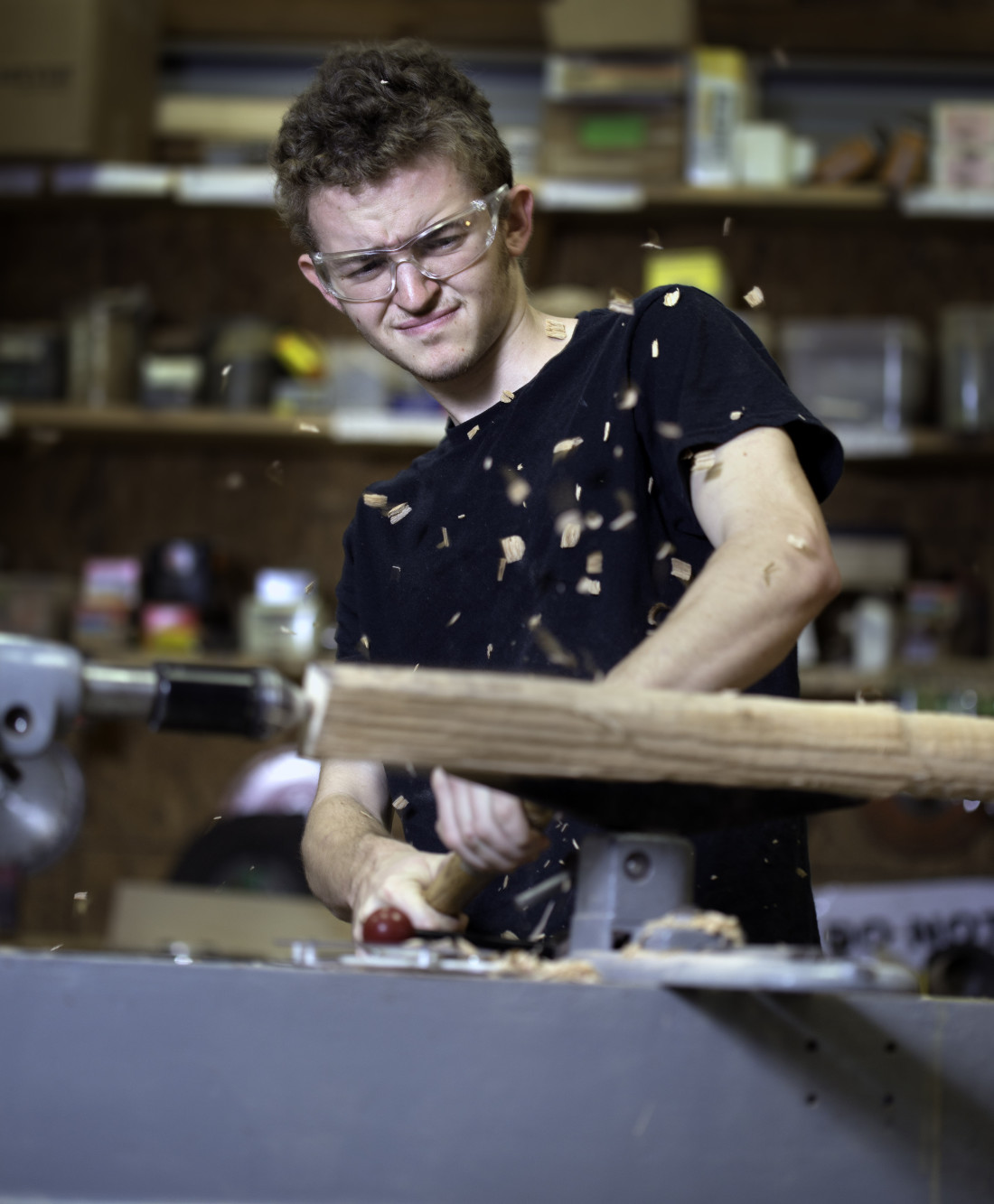“It’s the first of its kind,” says Namita Gupta Wiggers, founding director of Warren Wilson College’s Master of Arts in Craft Studies. The new low-residency program is expected to launch next summer. When it does, it will join the Master of Fine Arts Program for Writers, the Swannanoa-based college’s only other master-level offering.
“What we have a chance to do with this is create a new field of study,” Wiggers continues. “Craft has been here, but craft history and theory is fairly new.”
Last summer, Wiggers was among the scholars and experts invited by the college to take part in a think tank. They convened at The Center for Craft, Creativity & Design, as well as the Warren Wilson campus. Throughout these sessions, the team discussed the criteria and approach for creating the program. They also considered and challenged the relevance of the very proposals they made.
But after reviewing the history of the movement, as well as the resurgence of craft’s popularity, Wiggers says any lingering questions vanished. From Etsy to craft beer, she notes, “we’re seeing [craft] in so many different places.”
![EXPERT IN THE FIELD: Namita Gupta Wiggers will head the new master's program in craft studies at Warren Wilson College. From Etsy to craft beer, she notes, "we’re seeing [craft] in so many different places." Photo by Scott Wiggers](http://mountainx.com/wp-content/uploads/2017/09/Full-Head-Shot-Photo-by-Scott-Wiggers-720x720.jpg)
Paula Garrett, vice president for academic affairs and dean of Warren Wilson College, considers Wiggers the ideal candidate to head the new program. “She has her finger on the pulse of everything going on in the craft community,” Garrett says. “She has stellar teaching and curatorial experience, and she brings a Rolodex full of connections in the craft community for potential future faculty and programs.”
Wiggers is the former director and chief curator of the Museum of Contemporary Craft in Portland, Ore. She is also the co-founder of Critical Craft Forum, an online and on-site platform with over 10,000 international members, a monthly podcast and blog.
Students who enroll in the new courses in Swannanoa will be required to attend five two-week sessions on campus, as well as complete four semesters of independent study. While at Warren Wilson, they will partake in seminars and lectures, as well as observe, interact and learn from actual makers. Some of these artists, adds Wiggers, may include undergraduate students from the college’s craft crew — part of the school’s triad educational model, which includes work, service and learning.
However, the new program “is not a degree for learning to be a craftsperson,” Wiggers says. “It’s a degree for learning to be a historian and a theorist.” Nevertheless, Wiggers sees obvious benefits in acquiring hands-on experience in blacksmithing, weaving, pottery and other mediums. Such exposure, Wiggers explains, helps students “ask better questions when they’re thinking as historians or theorists.”
While off-campus, students will apply these experiences to independent research projects. Monthly online sessions also will keep faculty and students in regular contact.
Graduation requirements will include a bibliography and final project. The latter, notes Wiggers, will vary from person to person. “We may have people in this program who are curators or interested in curatorial work,” she explains. “So their final project may be an exhibition.”
Meanwhile, if another student is interested in pedagogy, Wiggers says that project might include developing “a whole new course to teach the history of craft.”
Currently, Wiggers is working on finalizing the program’s curriculum, as well as securing a roster of faculty. But even with these present-day unknowns, she says the response from prospective students has been tremendous. Since announcing the new program in August, Warren Wilson has received more than 150 formal requests for information about the program. In Wiggers’ opinion, it reflects “a strong desire [and] interest” in the new study.
Meanwhile, in Garrett’s view, the response also reflects the significance of Wiggers’ own involvement in the program. “Everywhere I go in Asheville, makers know and love Namita, and they congratulate Warren Wilson for hiring her,” Garrett says. “That’s a good sign.”
Learn more at avl.mx/45j




Can you email me more information please?